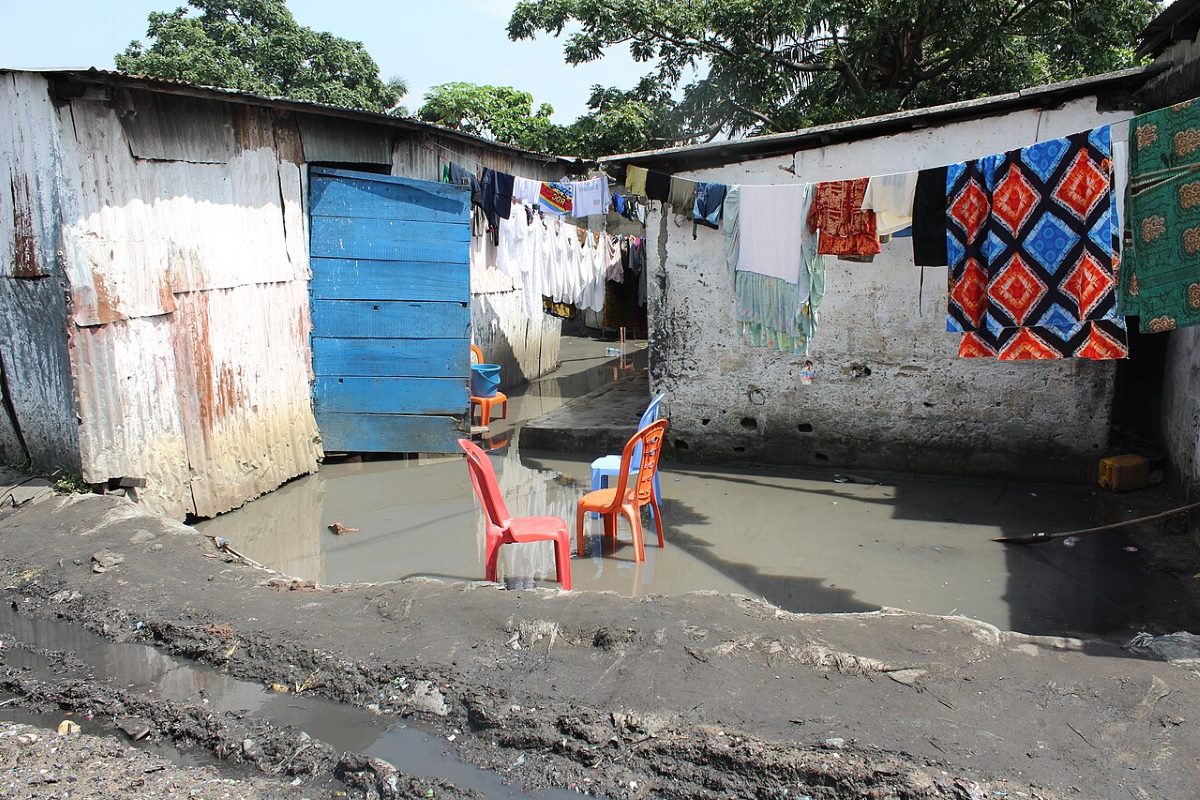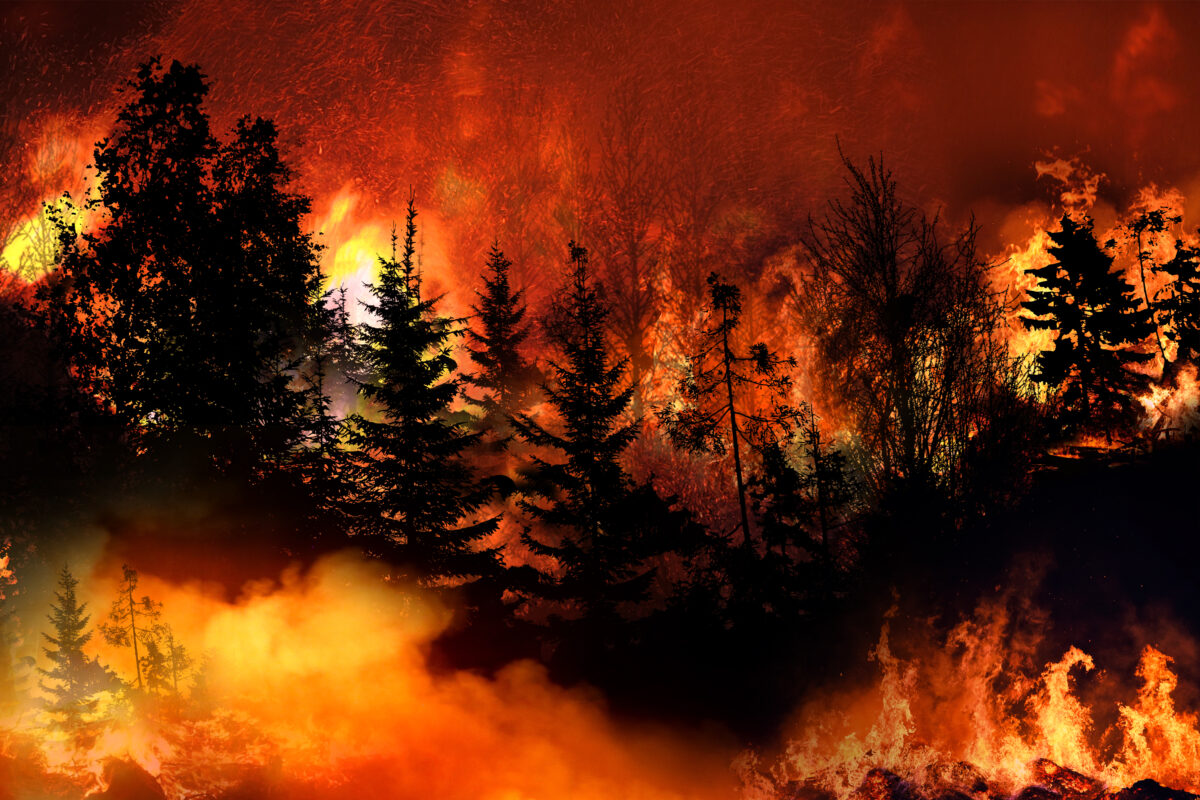 #News
#News
Psychological echoes of the climate crisis
Forest fires and other extreme events may increasingly impact people’s mental health
 Tragedies caused by climate change can have significant impacts on the mental health of people affected by these events, according to a study conducted by the University of California, San Diego | Photo: Shutterstock
Tragedies caused by climate change can have significant impacts on the mental health of people affected by these events, according to a study conducted by the University of California, San Diego | Photo: Shutterstock
In November 2018, an unprecedented and devastating forest fire claimed the lives of 86 people in the town of Paradise, California. Thousands of residents were affected to varying degrees by the tragedy attributed to the climate—California had been in a state of drought for five years, which sucked the moisture from the trees, allowing them to burn at a frightening rate. Over 18,000 buildings were destroyed. Only 5% of the region’s buildings were left intact.
In addition to the environmental and material damages, the tragedy also had psychological impacts, according to a study published this year by a team at the University of California, San Diego. The findings show how important it is for science to also investigate the trauma caused by the climate crisis.
Several models show that, in different parts of the world, extreme events, such as heavy rainfall and long droughts, as well as their consequences—such as the recurrent fires in California—will be more common in people’s daily lives. And this can have serious consequences for people’s mental health.
“The psychological trauma of climate events in general, but especially extreme ones such as large-scale forest fires, can have long-term impacts on the brains of survivors,” says biochemist Jyoti Mishra. Born in New Delhi, the scientist is the director of Neural Engineering and Translation Labs (NEATLabs) in San Diego and one of the authors of the study that investigated the mental health of Paradise residents.
“The way humans experience and mentally deal with climate catastrophes sets the stage for our future lives” – Jyoti Mishra, biochemist and director of Neural Engineering and Translation Labs (NEATLabs) in San Diego.
Changes in the brain
The findings published in January in PLOS Climate show that climate stress causes changes in the cognitive functioning of the brain. When traumatic events occur, people lose concentration easily. The electroencephalograms of 75 Paradise residents were analyzed. The methodology separated the participants into three groups of individuals: 27 people directly exposed to the consequences of the fire, 21 people indirectly exposed, and a control group of 27 volunteers who were not exposed. The groups were well matched by age and gender, as the article shows. The gender and ages of the sample group did not affect the analysis.
To assess the various aspects of cognition—in addition to synchronized recordings of electroencephalograms to measure brain function—the scientists used a specific dedicated platform called BrainE. A series of standard measurements were taken from tests measuring selective attention, response inhibition, working memory (the ability to retain information for a short period of time), and how the brain deals with emotional or non-emotional interference and distractions.
The researchers justify these choices on the basis of scientific literature. According to the article, several previous studies have already shown that the measurements chosen are essential for assessing human cognitive abilities. The measurements are also significant in the context of mental health problems related to trauma, anxiety, and depression.
“We observed that both groups of people exposed to forest fires, directly or indirectly, were dealing with the distractions [stimuli to divert concentration measured by the electronic platform] less effectively than the control group,” explains Mishra. The analyses also showed brain differences underlying the cognitive process classified as altered.
People exposed to the fires in California had greater frontal lobe activity while they were affected by the distractions. As this region is the center of the brain’s most complex functions, scientists suspect that frontal brain activity could serve as a kind of marker of cognitive effort.
What the data suggests, according to Mishra, is that people exposed to the fires may find it more difficult to handle distractions and may compensate for this change with more mental effort. The hypothesis that people affected by climate stress tend to find it more difficult to concentrate and, as a result, put more stress on their brains, still needs to be investigated further, say the researchers.
This is the second study conducted by the San Diego group. In the first study, on the forest fires that occurred in the fall of 2018 in the United States, chronic symptoms of post-traumatic stress disorder (PTSD), anxiety, and depression were highly prevalent in the affected communities, more than six months after the events. The total sample analyzed at the time consisted of 725 participants. Of this total, 75 have now entered the second round of evaluations, all of which were carried out between six months and one year after the fires.
The stress level detected during the first analysis, according to the scientists, was gradual. People whose homes or family members were directly affected by the fire showed greater damage to their mental health than those indirectly affected, i.e. people who witnessed the event in their community but did not suffer personal losses.
Mental health and climate change
According to Mishra, the scientific frontier that is now opening is gigantic. As climate change will lead to more and more disasters, says the US-based Indian researcher, it becomes “incredibly important” to understand the impacts of this whole process on human health, including mental health.
“Resilient mental health allows people to recover from traumatic experiences. The way humans experience and mentally deal with climate catastrophes sets the stage for our future lives,” says the scientist.
As research progresses, there are reliable indications that show how people can create effective strategies to fight the negative impact that climate tragedies have on mental health. Sleeping well and leading a healthy life that includes physical exercise is one of the safe harbors that everyone should seek out, say scientists.
Two other paths are equally important: solid social ties with friends and relatives, as well as specific training aimed at focusing on the present moment and avoiding judgment. For example, practicing yoga on a regular and long-term basis—a mind-body activity that requires focus—fits the bill.
This is demonstrated by several other studies carried out abroad and in Brazil, such as those conducted by researcher Elisa Harumi Kozasa at Hospital Israelita Albert Einstein’s Brain Institute.
*
This article may be republished online under the CC-BY-NC-ND Creative Commons license.
The text must not be edited and the author(s) and source (Science Arena) must be credited.


